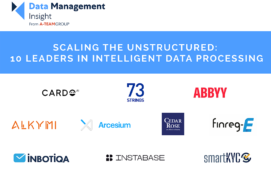Orchestra Networks has added data governance and visualisation to its EBX5 master and reference data management software in response to customer demand and in line with its strategy of delivering a complete multi-domain data management solution including governance, metadata and master and reference data.
Release 5.5.1 of EBX5, which manages data such as country codes, industry classifications and internal legal entity and finance data rather than transactional trading data, extends existing data governance to include features that are based on an ISO/IEC 11179 compliant metadata repository and can be used to maintain metadata for both EBX5 and external systems.
The features include a business glossary with support for multiple business-context definitions, synonyms and semantic associations; lifecycle, governance and version management tools to integrate governance workflows and policy management across all data; integration with master and reference data management to create connections between semantic concepts, model definitions and policies and master data domains, tables, data elements and values; and a browser-based interface that allows users to search and retrieve information from the data governance element of the system.
Pierre Bonnet, co-founder and chief operating officer of Orchestra Networks, explains: “Our users now have the option to manage business glossaries, governance processes, policies and metadata in the same place as their master and reference data. EBX5 provides the means to ensure semantic and governance consistency in master data management.”
The visualisation element that has been added to the latest release of EBX5 includes the ability to see structural views of an underlying data model; view values and relationships of a specific record or dataset; and navigate through association. It is designed to help users explore and manage relationships in master and reference data, and allows users to evaluate the logic of a master data model and the accuracy of relationships.
While Orchestra Networks serves many market sectors, Conrad Chuang, director of product marketing, says finance sector interest in EBX5 comes predominantly from financial institutions working on the non-exchange traded side of the market and, by way of example, using the software to manage finance hierarchies, product data and counterparty data. Banking sector users of the master and reference data management software include Credit Suisse, citi and BNP Paribas.
Subscribe to our newsletter




